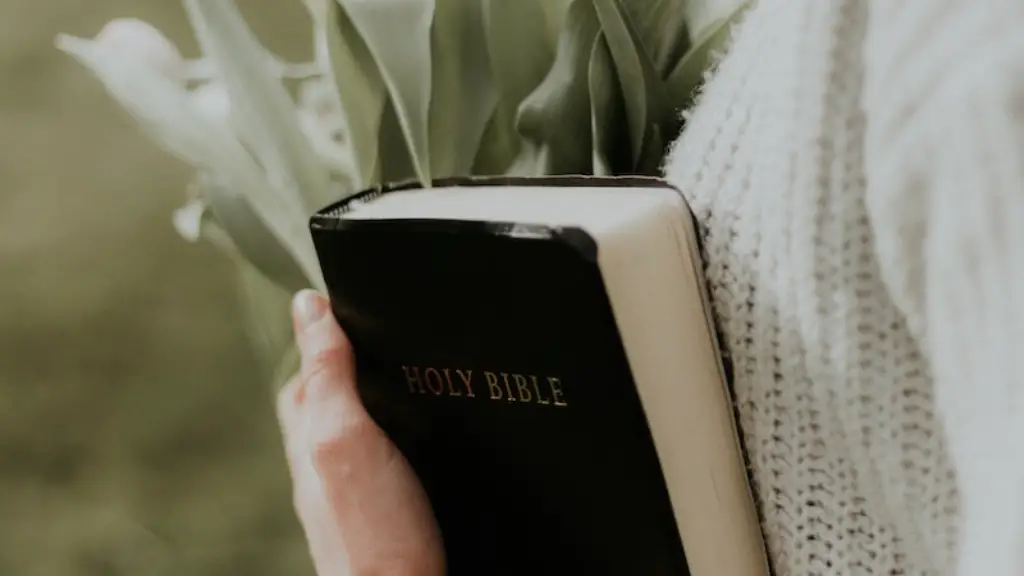The Bible is a sacred book for Christians and Catholics, but different denominations use different versions of the Bible. Many people are curious to know, what version of the Bible do Catholics use?
The official Bible of the Catholic Church is the Latin Vulgate. This is the Latin translation of the scriptures used for centuries in the Catholic Church. The Latin Vulgate was the only official edition of the Bible from the mid-16th century until the mid-20th century. It is still used today by many Catholic priests and Biblical scholars.
The Latin Vulgate is certainly the most authoritative and official version of the Bible for Catholics, but many Catholic Bible translations have been produced in other languages as well. In the mid-20th century, the Roman Catholic Church allowed the use of vernacular translations of the Bible, meaning new translations in languages like English, Spanish, French, etc.
Today, the most widely used Catholic Bible translation is the New American Bible, or NAB. This was translated in the 1970s and approved by the Catholic Church. It is used in many Catholic churches, schools, and other Catholic institutions. There are also several other Catholic versions of the Bible, including the Jerusalem Bible, New Jerusalem Bible, and the Revised Standard Version Catholic Edition.
When it comes to reading and studying the Bible, Catholics are typically encouraged to use the NAB. However, some may prefer a different version, which is entirely acceptable. Catholic Bible translations based on the Latin Vulgate are typically preferred for liturgical use, but reading any approved translation is permissible and beneficial.
The Purpose Of The Bible
The Bible is a source of inspiration and guidance from God to the people of the Christian faith. It is believed to contain many truths about the Christian faith, life, and morality that are useful to Catholics. The Bible is used by Catholics to pray and meditate on, including in the Liturgy of the Hours, which is the Catholic Church’s daily prayer cycle.
The Bible contains stories and narratives about the life of Jesus and his teachings. It also contains prophecies, poetry, and proverbs. The Bible is used both to learn about God and to seek guidance or comfort in times of difficulty. Catholic believers are encouraged to read and study the Bible regularly.
Obtaining A Bible
When searching for a Bible, Catholics should make sure it is a translation approved by the Catholic Church. Many bookstores carry Catholic Bible translations, as well as Catholic churches, schools, and other Catholic institutions. It is also possible to order Catholic Bible translations online.
It is also important to find a Bible with a reliable translation and commentary. Many Bibles have extra features, such as maps, indexes, and commentaries from prominent Catholic theologians. These can be helpful for those who are studying the Bible and looking for more in-depth analysis.
Catholic View On Bible Interpretation
The Catholic Church does not discourage individual interpretation of the Bible, but it does caution against making personal interpretations without guidance or instruction from a reputable source. Catholics are encouraged to read the Bible in communion with the Church and with the guidance of reliable Catholic sources and theologians.
When it comes to interpreting the Bible, Catholics must always adhere to the teachings of the Catholic Church. The Church is the only reliable source to interpret passages in the Bible. Private interpretations of Scripture can lead to confusion or erroneous conclusions. Catholics must keep in mind that the Bible is the inspired Word of God, and its teachings must always be interpreted in light of the Church’s teachings.
Catholic Understanding Of The Bible
The Catholic Church believes that the Bible is the inspired Word of God and it can be a source of guidance and comfort to faithful believers. Catholics, however, do not view the Bible as the sole source of authority or truth. The Bible must be read and studied in the context of the teachings of the Church.
The Catholic Church understands that Biblical passages might be difficult to interpret and can be subject to misinterpretation. Therefore, it is important to consider the overall teachings of the Catholic Church when trying to discern the meaning of a passage. This is why Catholics are encouraged to read and study the Bible in communion with the Catholic Church.
Importance Of Sacrifice In The Bible
The concept of sacrifice is a fundamental part of Christianity and is a major theme in the Bible. In the Old Testament, sacrifices were a means by which people could atone for their sins. The sacrifices were usually animals, such as lambs or cattle, that were offered to God.
In the New Testament, Jesus is the perfect sacrifice for our sins. Through his death and resurrection, Jesus offered up himself as the ultimate sacrifice to take away the sins of humankind. Catholics believe that Jesus is the only means by which we can receive forgiveness and eternal life. Catholics are encouraged to reflect on Jesus’ sacrificial death and resurrection when reading and studying the Bible.
Moral Teachings In The Bible
The Bible contains many teachings that can help guide Catholics in their moral life. These teachings are contained in stories, in the teachings of Jesus, and in the Ten Commandments. Catholics are encouraged to reflect on these teachings and apply them to their own lives.
The Bible also contains teachings on sin, redemption, and judgement. These teachings can help Catholics understand why sin is wrong, and why it is important to repent and turn away from sin. These teachings can also help Catholics understand the importance of mercy and forgiveness.
The Role Of The Bible In The Catholic Faith
For Catholics, the Bible is central to their faith. It provides a source of inspiration and comfort. It is a source of teaching and understanding. It is a source of guidance and strength. The Bible is a vital part of the Catholic faith and Catholics are encouraged to read and study it regularly.

